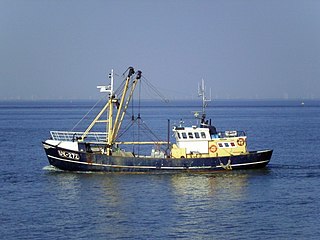
An injunction is an equitable remedy in the form of a special court order that compels a party to refrain from specific acts. It was developed by the English courts of equity but its origins go back to Roman law and the equitable remedy of the "interdict".

The European Court of Justice (ECJ), formally just the Court of Justice, is the supreme court of the European Union in matters of European Union law. As a part of the Court of Justice of the European Union, it is tasked with interpreting EU law and ensuring its uniform application across all EU member states under Article 263 of the Treaty of the Functioning of the European Union (TFEU).

The General Court, informally known as the European General Court (EGC), is a constituent court of the Court of Justice of the European Union. It hears actions taken against the institutions of the European Union by individuals and member states, although certain matters are reserved for the European Court of Justice. Decisions of the General Court can be appealed to the Court of Justice, but only on a point of law. Prior to the coming into force of the Lisbon Treaty on 1 December 2009, it was known as the Court of First Instance.

R v Secretary of State for Transport was a judicial review case taken against the United Kingdom government by a company of Spanish fishermen who claimed that the United Kingdom had breached European Union law by requiring ships to have a majority of British owners if they were to be registered in the UK. The case produced a number of significant judgements on British constitutional law, and was the first time that courts held that they had power to restrain the application of an Act of Parliament pending trial and ultimately to disapply that Act when it was found to be contrary to EU law.
A stay of proceedings is a ruling by the court in civil and criminal procedure that halts further legal process in a trial or other legal proceeding. The court can subsequently lift the stay and resume proceedings based on events taking place after the stay is ordered. However, a stay is sometimes used as a device to postpone proceedings indefinitely.

The Directive 96/9/EC of the European Parliament and of the Council of 11 March 1996 on the legal protection of databases is a directive of the European Union in the field of copyright law, made under the internal market provisions of the Treaty of Rome. It harmonises the treatment of databases under copyright law and the sui generis right for the creators of databases which do not qualify for copyright.

The Brussels Regime is a set of rules regulating which courts have jurisdiction in legal disputes of a civil or commercial nature between individuals resident in different member states of the European Union (EU) and the European Free Trade Association (EFTA). It has detailed rules assigning jurisdiction for the dispute to be heard and governs the recognition and enforcement of foreign judgments.
The principle of lis alibi pendens applies in municipal law, public international law, and private international law to address the problem of potentially contradictory judgments. If two courts were to hear the same dispute, it is possible they would reach inconsistent decisions. To avoid the problem, there are two rules.
In the area of conflict of laws, an anti-suit injunction is an order issued by a court or arbitral tribunal that prevents an opposing party from commencing or continuing a proceeding in another jurisdiction or forum. If the opposing party contravenes such an order issued by a court, a contempt of court order may be issued by the domestic court against that party.
In European Union law, and especially in European intellectual property law, a cross-border injunction is an injunction by a court in one European country, such as for example a court in the Netherlands forbidding infringement in several other European countries.
A preliminary ruling is a decision of the European Court of Justice (ECJ) on the interpretation of European Union law that is given in response to a request from a court or a tribunal of a member state. A preliminary ruling is a final determination of European Union law, with no scope for appeal. The ECJ hands down its decision to the referring court, which is then obliged to implement the ruling.

The Court of Justice of the European Union (CJEU) is the judicial branch of the European Union (EU). Seated in the Kirchberg quarter of Luxembourg City, Luxembourg, this EU institution consists of two separate courts: the Court of Justice and the General Court. From 2005 to 2016, it also contained the Civil Service Tribunal. It has a sui generis court system, meaning 'of its own kind', and is a supranational institution.
Born in 1965 in Liège, Belgium, Jean-Louis Dupont is a lawyer specialized in European law.

Cukurova Finance International Ltd & Anor v Alfa Telecom Turkey Ltd[2009] UKPC 19, P.C., [2012] UKPC 20, [2013] UKPC 2, [2013] UKPC 20, [2013] UKPC 25 and [2014] UKPC 15 were a series of judicial decisions of the Judicial Committee of the Privy Council, one of which is a leading case on the remedy of appropriation for security interests that was introduced into United Kingdom law under the Financial Collateral Arrangements (No.2) Regulations 2003, which implemented the Financial Collateral Arrangements Directive. Together with its related appeals on preliminary and subsequent issues, it has defined the scope of the remedy, as well as what equitable relief may be available.
Google Spain SL, Google Inc. v Agencia Española de Protección de Datos, Mario Costeja González (2014) is a decision by the Court of Justice of the European Union (CJEU). It held that an Internet search engine operator is responsible for the processing that it carries out of personal information which appears on web pages published by third parties.
Gasser v MISAT (C–116/02) was a decision of the European Court of Justice regarding the interpretation of the Brussels convention of 1968 ruling that a court chosen in a choice of court agreement should stay its proceedings - as any other court chosen second within the Brussels regime - until the court first seized had declared it did not have jurisdiction. The court's decision was considered problematic as it favoured the uniformity of application of the Brussels regime jurisdictional rules temporarily over party autonomy. Due to similar provisions in the 2001 Brussels Regulation and Lugano Conventions, the interpretation also affects choice of court agreements under those later instruments. However, in the 2012 Recast version of the Brussels I Regulation chosen courts can take jurisdiction, even if a court not chosen has been addressed first.
The Statute of the Court of Justice of the European Union contains the main EU law rules on how the Court of Justice of the European Union should function. Founded in 1951, The CJEU sits in Luxembourg, and it operates in two sections: The European Court of Justice (ECJ) and the General Court (GC). A direct component of the EU, the five main goals of the CJEU are:

Société Nationale Industrielle Aérospatiale v Lee Kui Jak[1987] UKPC 12, [1987] AC 871 is a judicial decision of Privy Council on appeal from Brunei which was for many years, and arguably still is, the leading authority in relation to anti-suit injunctions under the English common law.
Bundesverband der Verbraucherzentralen und Verbraucherverbände — Verbraucherzentrale Bundesverband eV v Planet49 GmbH (2019) Case C‑673/17 is a decision of the Court of Justice of the European Union on the consent requirement for the placement of cookies under Article 2(f) and Article 5(3) of Directive 2002/58/EC concerning the processing of personal data and the protection of privacy in the electronic communications sector (‘ePrivacy-Directive’), as amended by Directive 2009/136/EC.








